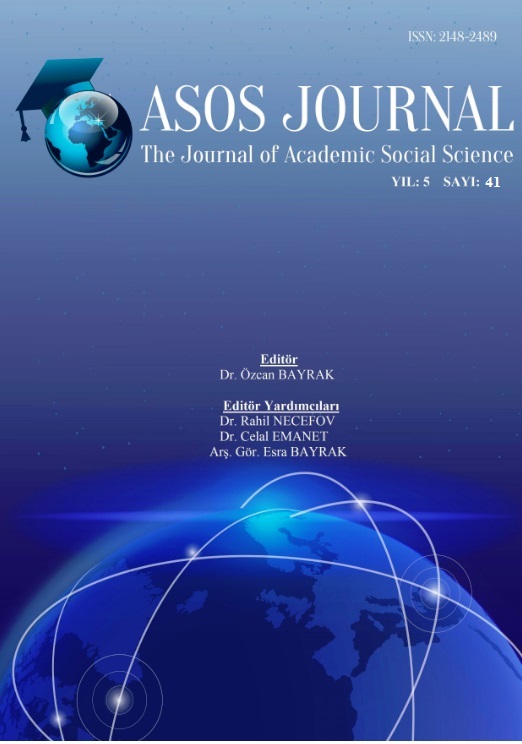Author :
Abstract
Bu çalışmada, Türkiye'de bir zaman bankası olarak faaliyet gösteren Zumbara (zaman ve kumbara için çağrışım) armağan ekonomisi ve alt bileşenleri olan sosyal, kültürel ve sembolik sermaye bağlamında ele alınmıştır. Bu sistemin Türkiye ve Kuzey Kıbrıs Türk Cumhuriyeti'nden yaklaşık 40.500 üyesi bulunmaktadır. 2009 yılından beri faaliyet gösteren bu oluşum, kâğıt para yerine zaman para birimi ile servis değişimi sağlamaktadır. Çalışmada, bu zaman bankası hediye ekonomisinin karşılıklılık ilkesi ve Bourdieu'nun ekonomik olmayan sermaye faktörleri teorisi temel alınarak değerlendirildi. Çalışmanın metodolojisi olarak karma yöntemler kullanılmıştır, önce zaman bankası sisteminden elde edilen verilere niceliksel analiz uygulanmış, daha sonra zaman bankasının üç yöneticisi ile yüz yüze görüşme yoluyla bulgular derinlemesine analiz edilmiştir. Bu sermaye türlerini Türkiye bağlamında incelediğimizde aralarındaki sınır çok bulanıklaşmaktadır. Bununla birlikte, literatürdeki tanımlara uymaya çalışılmış, iş ve mezuniyet niteliği sembolik sermaye bağlamında, etkinlik toplantıları ve coğrafi çerçeve sosyal sermaye, eğitim kültürel sermaye bağlamında ele alınmıştır. Sonuç olarak, zaman bankasının tam olarak armağan ekonomisi bağlamında faaliyet göstermediğini, ancak kültürel, sembolik ve sosyal sermayenin sistemde faaliyet göstermek için önemli olduğu tespit edilmiştir.
Keywords
Abstract
In this study, Zumbara (connotation for time and moneybox), which operates as a time bank in Turkey, is discussed in the context of gift economy and its subcomponents social, cultural and symbolic capital. There are approximately 40,000 members of this system from Turkey and the Turkish Republic of Northern Cyprus. It has been operating since 2009 and is carrying out service exchange with time currency instead of paper money. In the study, this time bank was assessed on the basis of reciprocity principle of gift economy and Bourdieu's theory of non-economic capital factors. In the study, we methodically used mixed methods and first applied quantitative analysis to the data obtained from the system of time bank, and then we analyzed the findings in depth by face-to-face interview with three managers of time bank. When we consider these types of capital in the context of Turkey, the border between them is very blurry. However, we have tried to adhere to the definitions in the literature and have discussed cultural capital in the context of education, social capital in terms of activity meetings and geographical framework and symbolic capital in the context of work and graduation qualification. As a result, we have found that the time bank does not operate fully in the context of the gift economy, but the cultural, symbolic and social capital is important for participation in the system.
